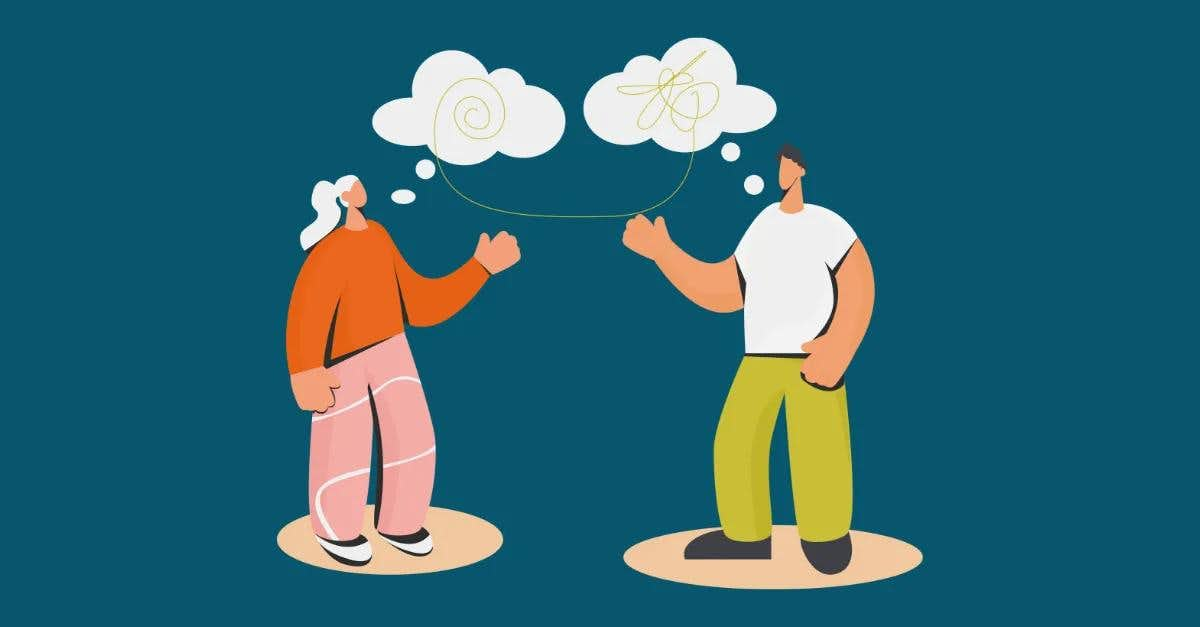October 11th, 2023

Neurodevelopmental disorders are complex conditions that begin at early developmental stages. They can have very different presentations and can influence an individual's quality of life and functioning. Autism and ADHD are both under the umbrella of neurodevelopmental disorders. Autism affects about 1.5% of the worldwide population. ADHD affects about 5% of people worldwide.
Autism and ADHD are more prevalent neurodevelopmental disorders, but there can also be misconceptions about them. Each has distinct traits, as well as unique strengths and challenges. This blog post will provide an overview of autism and ADHD, discussing autism symptoms, ADHD symptoms, the process of diagnosis, and potential interventions. Finally, this blog post will address the similarities and differences between autism and ADHD.
Autism affects how individuals communicate, behave, and interact with others. Because it exists on a spectrum, a wide range of symptoms and behaviors can contribute to a diagnosis.
The symptoms of autism spectrum disorder (ASD) include:
Because autism occurs on a spectrum, specific autism symptoms vary from person to person. Those at lower severity levels may be independent and only need minimal support. Those with more severe issues may require more extensive, long-term assistance. This severity may vary based on context.1

The following criteria apply for an ASD diagnosis:
Professionals who specialize in ASD diagnosis can diagnose autism and perform an autism test or autism spectrum test. These include medical professionals (pediatricians, psychiatrists, etc.) and mental health professionals (psychologists). Related professionals, such as speech-language pathologists or occupational therapists, may also diagnose autism.7,8
Several factors contribute to a diagnosis. They can include an individual's behavior, developmental history, input from close contacts, personal interviews, and diagnostic evaluations (including psychometric testing).9 Not everyone receives an autism diagnosis in childhood.
A diagnosis can help individuals understand their specific challenges and support options.
Interventions for Autism
Because each individual's experience of autism is unique, treatment will address specific needs. Goals can be to increase independence and reduce daily challenges. Some interventions include behavior therapy, speech-language therapy, occupational therapy, and physical therapy. Social skills training, individual therapy, and family therapy may also be helpful.10,11,12
The presence of other medical issues may influence treatment approaches.
Attention-Deficit/Hyperactivity Disorder (ADHD) is characterized by difficulties with attention, concentration, hyperactivity, and impulsivity. Some individuals may struggle more with attention than hyperactivity, and vice versa. Some may present with several symptoms in both areas.1

ADHD symptoms associated with ADHD fall under two categories: inattention and hyperactivity-impulsivity.
Inattention ADHD symptoms include:
Hyperactivity-Impulsivity ADHD symptoms include:
Not every symptom has to be present for an ADHD diagnosis. However, a certain number must be present in each category to receive the diagnosis. Criteria for diagnosing ADHD vary from child to adult.1,13
For an ADHD diagnosis, the following criteria apply:
Qualified medical or mental health professionals or related specialists can diagnose ADHD and perform ADHD tests. Observation, diagnostic evaluations, and interviews help these professionals arrive at an ADHD diagnosis.13,15 Not everyone receives an ADHD diagnosis in childhood.
ADHD Treatment options include:
Those with ADHD may have other mental health issues like anxiety or depression. Treating these issues may also help individuals better cope with their ADHD symptoms.

There can be similar behaviors and challenges between autism and ADHD. Autism symptoms and ADHD symptoms can present at early ages. Symptoms may contribute to issues with executive functioning, learning, or socializing. There may be emotional regulation and sensory issues and challenges with sustaining attention and task switching in both disorders. Individuals with these disorders can struggle to manage daily tasks and address life stressors.
Both ADHD and autism can co-occur with other mental health and medical issues.
ASD and ADHD each have specific characteristics. These distinctions account for the main differences between autism and ADHD in adults. Adults with autism may have social deficits, repetitive behaviors, and restricted interests. Adults with ADHD may experience attention, concentration, hyperactivity, and impulsivity issues. Intellectual and language development issues are not criteria for an ADHD diagnosis.
Similar symptoms, such as communication issues, differ in presentation between autism and ADHD. Adults with autism may strain to start and sustain conversations. They may have limited interest in conversing. Adults with ADHD may struggle with excessive talking or impulsivity issues in conversations. Understanding these differences can help distinguish between autism and ADHD.
Autism and ADHD present with distinct characteristics, challenges, and strengths. More knowledge about these disorders can deepen individuals' awareness of their symptoms. Understanding diagnostic criteria and potential treatment approaches can help empower individuals to seek support where needed.
At Clarity Clinic, we have highly trained staff specializing in therapy and psychiatry services. Clarity Clinic currently offers Medication Management (ADHD medication & Autism Medication), Therapy, TMS therapy, and more mental health services across Illinois.
Schedule an appointment in one of our mental health clinics to get an ADHD test or Autism spectrum test from one of our certified professionals. Whether you need ADHD medication or therapy options for autism, Clarity Clinic can help.
To learn more about how we can support your mental health, call Clarity Clinic at (312) 815-9660 or schedule an appointment today. We proudly provide the best therapy and psychiatry services in Evanston, Arlington Heights, Belmont Lakeview, Broadway Lakeview, and downtown Chicago (Loop and River North).
Book a Consultation Now!References
1. American Psychiatric Association. (2013). *Diagnostic and Statistical Manual of Mental Disorders* (5th ed.).
3. Autism Speaks. (n.d.). What is autism?
5. Children's Hospital of Philadelphia. (n.d.). Intellectual disability and ASD.
6. Autism Speaks. (n.d.). Signs of autism.
7. Centers for Disease Control and Prevention. (n.d.). Autism screening and diagnosis.
8. Children's Hospital of Philadelphia. (n.d.). Who is able to diagnose autism spectrum disorder?
9. National Institute of Mental Health. (n.d.). Autism spectrum disorders (ASD).
11. Centers for Disease Control and Prevention. (n.d.). Autism treatment.
12. Autism Science Foundation. (n.d.). Treatment options.
13. National Health Service. (n.d.). Diagnosis of attention deficit hyperactivity disorder (ADHD).
14. Centers for Disease Control and Prevention. (n.d.). ADHD diagnosis.
16. Children and Adults with Attention-Deficit/Hyperactivity Disorder (CHADD). (n.d.). Treatment.

Our Services
Virtual/Online CarePHP and IOPAdult PsychiatryChild & Adolescent PsychiatryAdult TherapyChild & Adolescent TherapyCouples CounselingFamily TherapyGroup TherapyPsychological TestingTranscranial Magnetic Stimulation (TMS)Resources
Refer a PatientCareersClinical Training OpportunitiesOur ProvidersFree Mental Health TestsCommonly Prescribed MedicationsLocationsBlogIn The NewsClarity Through CharityClarity for AllQuick Links
Patient PortalFAQsAccepted InsurancesContact us